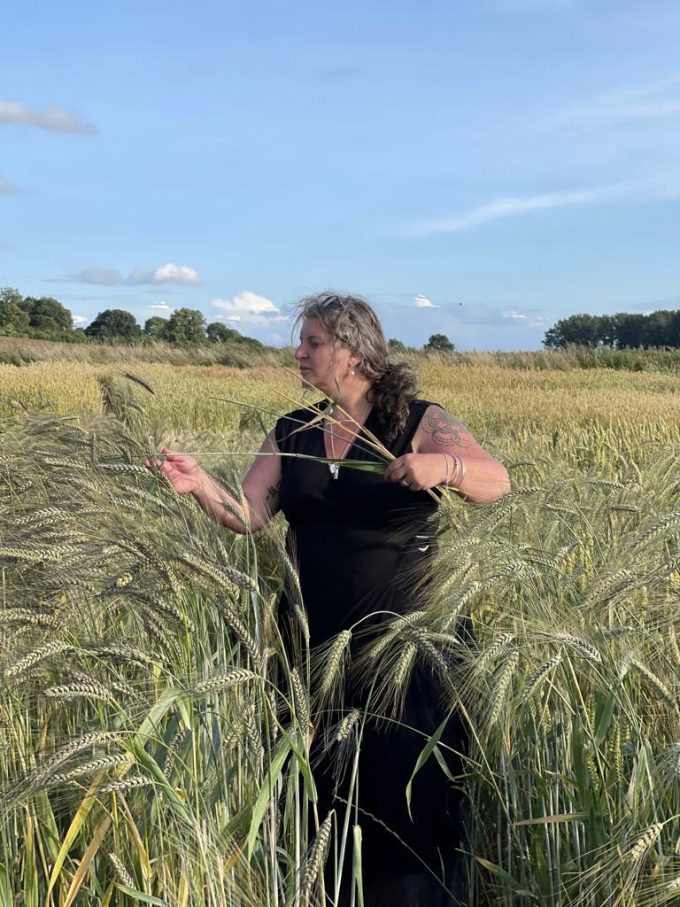Explain What Regenerative Farming Practices are the UK
Regenerative Farming: Regenerative farming is an agricultural approach aimed at improving soil health, enhancing biodiversity, and increasing resilience to climate change. It involves practices that restore and enhance the natural ecosystem, focusing on soil regeneration, water management, and biodiversity.
Organic Farming: Organic farming, while similar in its avoidance of synthetic chemicals, primarily focuses on maintaining ecological balance and conserving biodiversity. Organic farming is strictly regulated and must adhere to specific standards to be certified.
Key Differences Between Regenerative and Organic Farming
| Aspect | Regenerative Farming | Organic Farming |
|---|---|---|
| Principle Focus | Soil health, carbon sequestration, and ecosystem restoration | Avoidance of synthetic chemicals, maintaining ecological balance |
| Certification | No formal certification, but principles are widely acknowledged | Requires certification by organic standards bodies |
| Soil Management | Emphasises no-till or reduced tillage, cover cropping, and compost | Uses organic fertilisers, crop rotation, and cover crops |
| Agrochemical Use | Minimises or eliminates synthetic chemicals | Prohibits synthetic pesticides and fertilisers |
| Biodiversity | Actively promotes biodiversity through diverse planting | Maintains biodiversity through crop rotation and organic practices |
| Animal Integration | Integrates livestock to enhance soil fertility | Requires organic feed and practices for livestock |
| Carbon Sequestration | Focuses on increasing organic matter to sequester carbon | Carbon sequestration is a secondary benefit |
| Environmental Impact | Aims to regenerate ecosystems and reverse climate change effects | Reduces environmental harm through organic practices |

Use of Agrochemicals
- Regenerative Farming:
- Minimises or entirely eliminates the use of synthetic agrochemicals. Instead, it promotes natural pest control methods, organic fertilisers, and biostimulants. Key practices include cover cropping to enhance soil fertility and using compost and animal manure to provide nutrients.
- Environmental Impact: By avoiding synthetic chemicals, regenerative farming reduces soil degradation, water pollution, and greenhouse gas emissions. It focuses on building a resilient agroecosystem that can adapt to and mitigate the impacts of climate change.
- Organic Farming:
- Strictly prohibits synthetic pesticides and fertilisers. Only naturally derived substances and some approved synthetic substances are allowed. Organic farming relies heavily on compost, green manures, and crop rotations to maintain soil fertility.
- Environmental Impact: Organic farming significantly reduces the environmental footprint compared to conventional farming by avoiding harmful chemicals and promoting biodiversity. However, it may not focus as intensively on soil carbon sequestration and overall ecosystem regeneration as regenerative practices do.
Policy on Glyphosate
- Regenerative Farming: Generally opposes the use of glyphosate due to its negative impact on soil health and biodiversity. Practices aim to eliminate the need for such chemicals by building a healthy, self-sustaining ecosystem.
- Organic Farming: Prohibits the use of glyphosate entirely. Organic standards mandate that no synthetic herbicides, including glyphosate, be used at any stage of crop production.
Glyphosate Impact:
- Glyphosate is a widely used herbicide that has been linked to soil degradation, reduced biodiversity, and potential health risks, including cancer. Its usage in agriculture has been a point of contention, with many advocating for safer, more sustainable alternatives.
To summarise, regenerative and organic farming both offer sustainable alternatives to conventional agriculture, but they differ in their approaches and specific practices. Regenerative farming emphasises ecosystem restoration and soil health, while organic farming focuses on avoiding synthetic chemicals and maintaining ecological balance. Both aim to create a more sustainable agricultural system, but regenerative farming often goes further in its environmental impact and holistic approach to farming practices
Which is best Organic farming or Regenerative Farming?
Regenerative farming is best because it boosts soil and biodiversity; organic farming avoids synthetic chemicals. Both promote sustainable agriculture and environmental health.
Organic Farming is best because it restores soil health, enhances biodiversity, and sequesters carbon. It creates a resilient ecosystem, reduces greenhouse gas emissions, and promotes long-term sustainability and environmental health
Both regenerative and organic farming have their strengths and contribute to sustainable agriculture. However, regenerative farming is often considered more comprehensive because it not only avoids synthetic chemicals like organic farming but also actively restores soil health, enhances biodiversity, and sequesters carbon. This holistic approach addresses environmental issues more broadly, making regenerative farming a highly effective choice for long-term sustainability and resilience.
For health, organic farming is often considered best because it avoids synthetic chemicals, pesticides, and GMOs, resulting in cleaner, potentially more nutritious food. This reduces exposure to harmful substances and promotes overall well-being. However, regenerative farming also contributes to health by producing nutrient-rich food through practices that restore soil health and biodiversity. Both approaches offer significant health benefits, but organic farming’s strict avoidance of synthetic chemicals makes it particularly advantageous for health-conscious consumers.
It depends on your values and priorities.
- Health Focus: If your primary concern is avoiding synthetic chemicals and consuming cleaner, potentially more nutritious food, organic farming may be the best choice.
- Environmental Impact: If you prioritise environmental restoration, biodiversity, and long-term sustainability, regenerative farming may be more aligned with your values.
Both methods offer substantial benefits, and the best choice depends on what aspects you value most in your food and farming practices.



